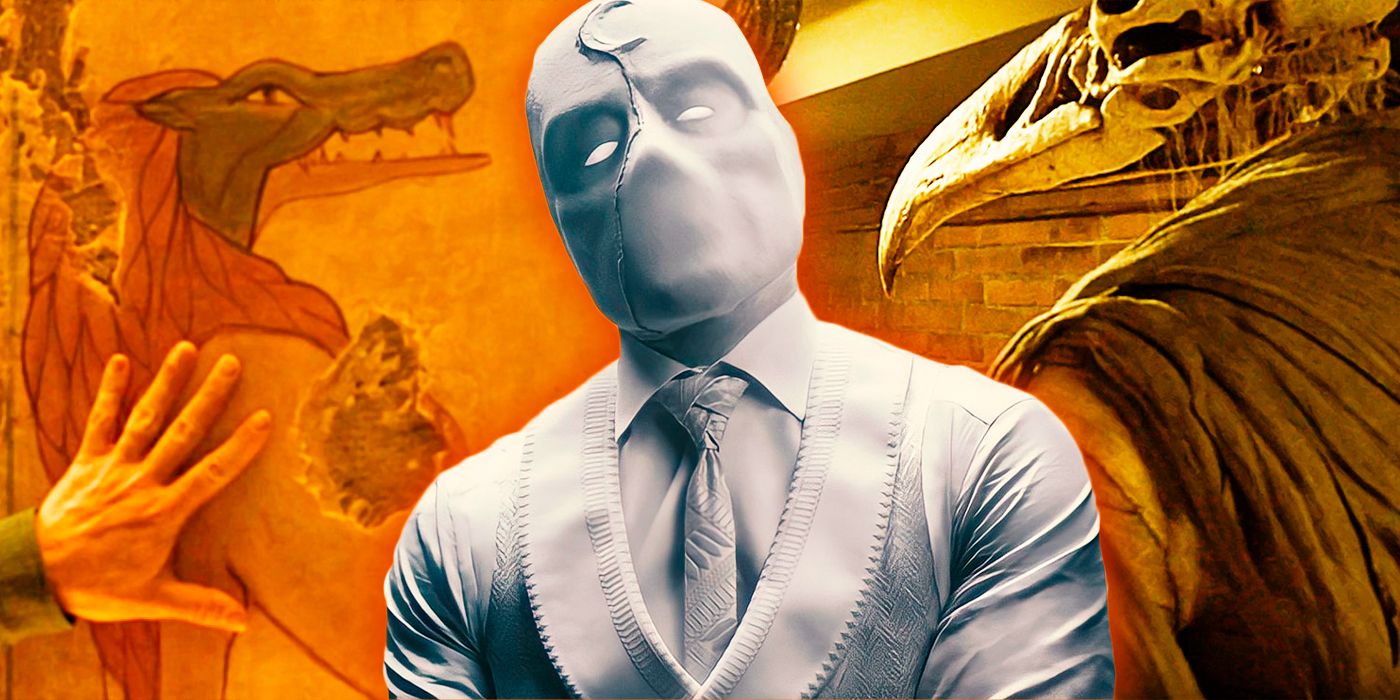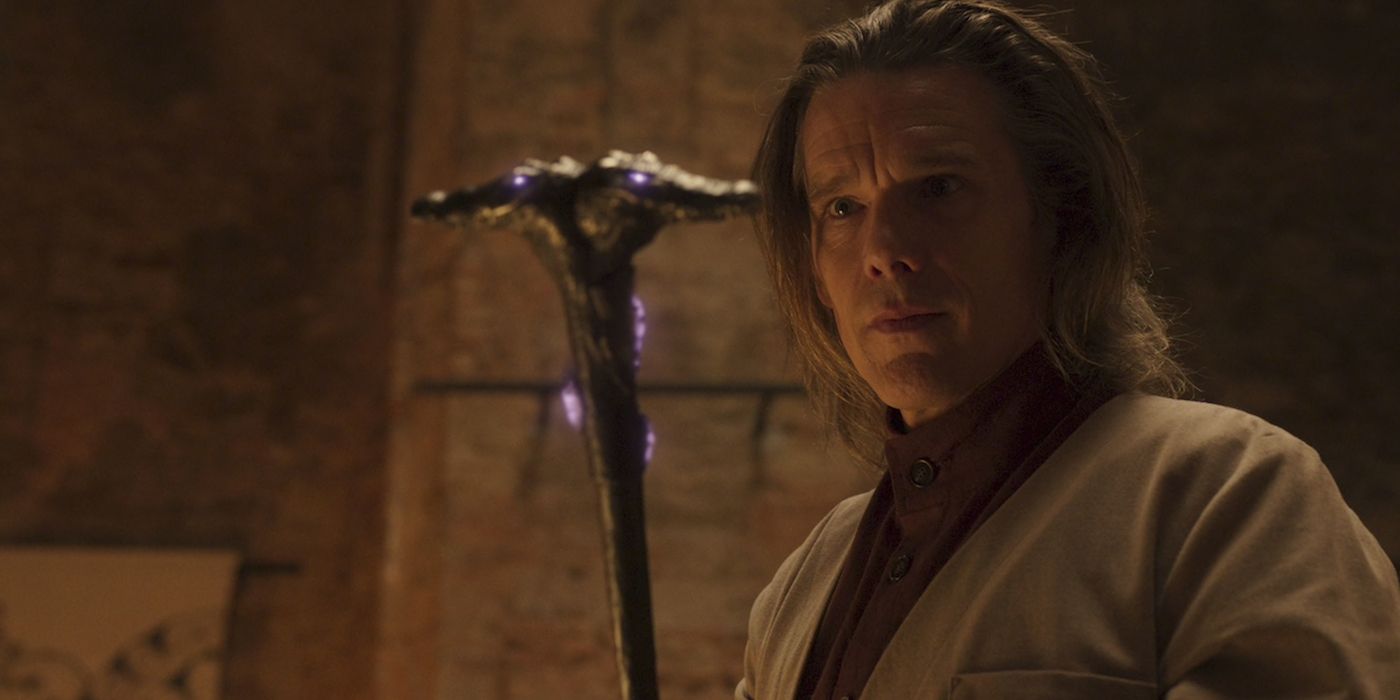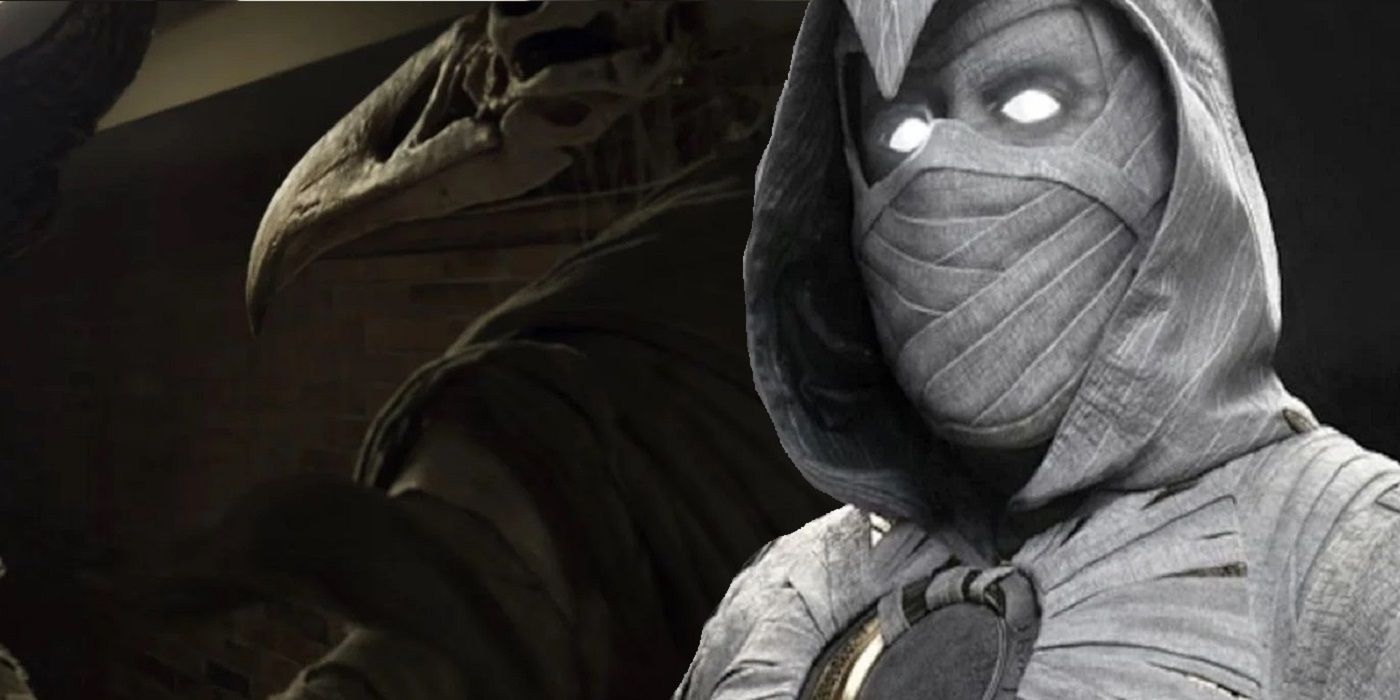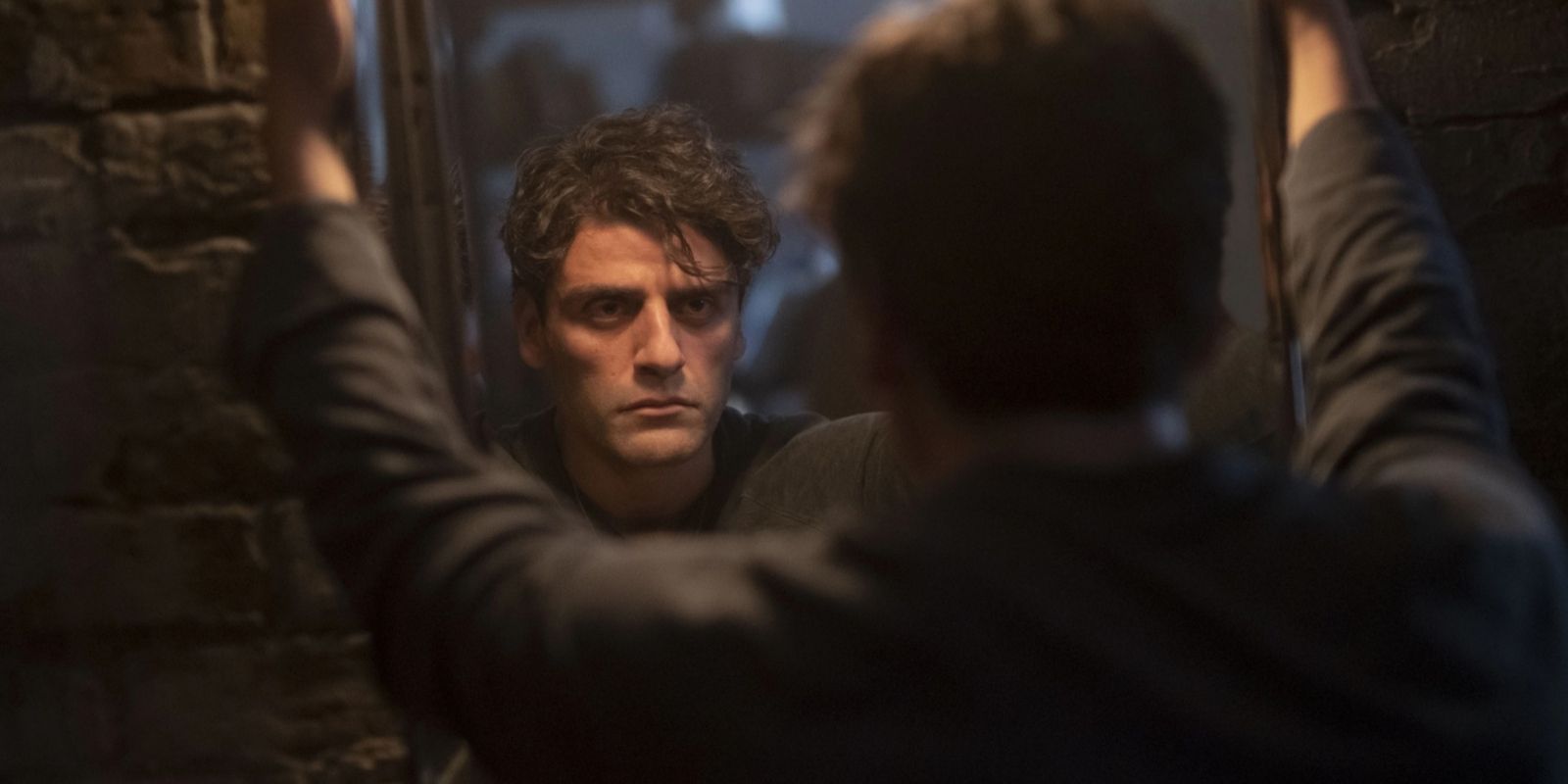The following contains major spoilers for Moon Knight Episode 2 “Summon the Suit,” streaming now on Disney+.
Thus far Moon Knight has been a story of two competing gods with similar portfolios centered on the administration of justice but executed in two ideologically polarizing ways. Khonshu, the god of the moon and punisher of wrong doers stands in conflict with Ammit, the devourer of those who have and importantly will one day commit vile acts. Ammit's disciples seek to resurrect her so that her seer like abilities can ferret out evil before it harms anyone while Khonshu's Avatar is vigorously doing everything in his power to prevent that from happening.
While the mortals do battle with one another to determine the fates of all those who may suffer under the weight of celestial judgment, there is a lot that remains unknown about whether these gods can be trusted or even if either is in good stead within their pantheon. It is possible that both deities are using their mortal intermediaries as pawns in a game that remains unrevealed and there are good reasons to believe they are not operating within the sanction of their deific counterparts.
Unlike the gods of Asgard, Khonshu and Ammit can only act on the mortal plane of existence through the actions of their Avatars. Through these chosen exemplars they exert their will on the world. In Khonshu's case this takes the form of punishment for those who have harmed others and in that effort the god of the moon bestows a portion of his might unto one he finds worthy of his gifts who also shares his passion for probity. The fist of vengeance, dispenses violence in his name but this wasn't sufficient for at least one of his previous hosts. Arthur Harrow once served Khonshu but at some point became disillusioned with the suffering he allowed.
Ammit on the other hand made a different promise. She claimed to be able to judge the past, present and future actions of all evildoers and had the power to render immediate judgment. Her rule would mean an end to the concept of free will but in its place would reside a paradise tainted with the deaths of those who committed no evil act. Harrow soon became her Avatar instead and sought her tomb so that he might be able to resurrect her, leading to her dominion over life and death. In the first episode of the series Harrow says that Ammit was betrayed by her companion deities as well as her Avatar.
There has been some speculation as to who that might have been but more importantly it portrays Ammit as sitting outside the realm of pantheistic consensus. Harrow describes her cohort as lazy, implying on some level that they were unfit to render judgment on her actions. It is also unclear if her resurrection, or rather the need of it, is specifically related to this betrayal but one could conclude that her adoption of a dogma that forfeit humanity's ability to choose their fate may have run afoul of their collective agency. The "death" she suffered could be punishment for implementing that creed which is why she is now in need of a phoenix moment.
Harrow makes similar claims about Khonshu in Episode 2 "Summon the Suit," reporting that the moon god was banished by his kin and posits that it may have had something to do with his temperament. Khonshu is relentless, demanding, impatient and severely critical of failure when it comes to his dealings with humanity but there have been no interactions between him and other gods to assess whether or not his belligerence is offensive to their assemblage. His tenuous state within the hierarchy could be related to his overlap with Ammit's breadth of power and responsibility.
Khonshu may have been ousted because of a failure to stop Ammit in the past from going about her work. Steven Grant, one of the identities of Khonshu's Avatar, remarked that her abilities to pierce the veil of the future and render judgment were not covered in any of the material that he has read about the Egyptian gods. Historically speaking that is an accurate reaction since Ammit was not a deity that was worshipped but more of a bestial force of nature that executed the will of others, though the shape and texture of that relationship shifted according to different traditions. Broadly speaking it was Anubis who was responsible for weighing the heart and those who were found unworthy were fed to Ammit or tossed in the lake of fire where she roamed.
Steven says as much to a young visitor at the museum where he works, therefore establishing that some form of that tradition exists in the Marvel Cinematic Universe, which would mean that Harrow's claims about Ammit's power runs counter to that narrative. He tells Steven that she grew weary of waiting for evil to occur before delivering justice, so it may be that she overstepped her authority in an unsanctioned way and it was left to Khonshu to clean up the mess. Ammit's crimes in usurping that mantle may have warranted her death and Khonshu's failure to stop it may have lead to his banishment. It may have been seen by the Ennead and the other gods of the pantheon that since the adjudication of justice was within his purview that it was his responsibility to set the matter right.
There may also be another small apocryphal indicator suggesting that these two gods reside outside of favor without taking Harrow at his word. Early in the first episode Steven points out that the banners outside the museum and the posters in the gift shop are missing two of the Ennead, which translates to the nine. There are only seven depicted but it does not go on to say which seven are included or which two are missing. The Ennead is composed of Atum, Shu, Tefnut, Geb, Nut, Osiris, Seth, Isis, and Nephthys. Neither Khonshu or Ammit sit among the monarchy of godhood, Ammit isn't even a goddess in her own right, so it shouldn't implicate them directly as outcasts but it probably isn't a coincidence either and may speak more to the nature of the museum that has yet to be discovered.
To see two gods cast out of heaven and below, Moon Knight is streaming now on Disney+, new episodes airing on Wednesdays.




